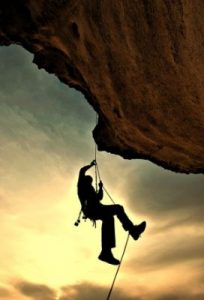First published on Israel National News / Arutz-7
Rabbi Shlomo Riskin, the respected Chief Rabbi of Efrat, began his career guiding people towards traditional Jewish observance. Appointed Rabbi of the new Lincoln Square Conservative Synagogue shortly after receiving Smicha (ordination), he quickly persuaded his congregation to drop "Conservative" from both name and practice. Under his leadership, Lincoln Square grew into an early leader in Jewish outreach.
This makes his near-endorsement of a greater Israeli presence for the American Reform and Conservative movements all the more mystifying. While there have been significant changes since he made Aliyah (immigrated to Israel) in 1983, he emphasizes his own “contact with Reform and Conservative Rabbis” – and thus should remain familiar with their activities and outlook.
One might make a credible argument that access to a public Mikvah (ritual bath) in Israel should be open to anyone, regardless of affiliation or intended use. But that was not Rabbi Riskin's claim in a recent interview with Arutz 7. Rather, he suggested one should permit liberal Rabbis to use Mikvaot (for non-Halakhic conversions, no less) because “they're not our enemies, they're our partners.”
To love and pursue peace is a religious imperative. But as the Kotzker Rebbe once quipped, “when truth is discarded, peace is easily achieved.” The sad truth is that the American liberal rabbis and movements are anything but partners.
Most Israelis are unfamiliar with these groups; when they are introduced, they are often dismayed. Israel's current President, Ruby Rivlin, was invited to visit an American Reform Temple when first elected as an MK in 1989. He told the Israeli media afterwards that "as a Jew who does not observe 613 commandments and perhaps not even 13 commandments, I was deeply shocked… I felt as if I were in a church."
Reform leaders objected and professed insult – yet it was not so long ago that the rabbi of New York's Temple Emmanu-El boasted that "a prominent Christian lawyer… told me that he entered this building at the beginning of a service on Sunday morning, and did not discover that he was in a synagogue until a chance remark of the preacher betrayed it."
So are they encouraging similarity to churches, or not? They want to have it both ways; this is a recurring pattern.
Whereas Jewish tradition frowns upon conversion for the sake of a Jewish partner, the Reform and Conservative movements both actively encourage it. In 1983, Reform went yet further, pronouncing the child of a Jewish father to be Jewish – leading to a precipitous decline in those same conversions for marriage. But even if the mother of an intermarried son now believes that she will have Jewish grandchildren, this is usually wishful thinking: children of intermarriage remain unlikely to identify as Jews.
Having seen the failure of patrilineal descent, the Conservative movement refused that change. In most other matters, however, it has followed Reform's lead – with regards to driving on Shabbat, ordaining women, and even same-sex marriage. The average American Reform or Conservative Jew is today so far removed from basic Jewish practices that, comparing Pew Surveys in both countries, Israel's self-defined hilonim (secular Jews) are observant by comparison – more likely to light Shabbat candles, attend a Pesach Seder, or fast on Yom Kippur.
In 2013 the Pew Survey identified 1.8 million Reform Jews in the US, under 1 million Conservative Jews, and just over a half million Orthodox – but if the birth, intermarriage and assimilation rates of the distinct groups continue apace, the Orthodox will constitute the majority within several decades.
Israelis can certainly see the extent to which the American liberal movements strive for partnership. When Anat Hoffman ran for Jerusalem City Council on the Ratz-Shinui ticket in 1989, her platform was one of anti-Orthodox animus so poisonous that even many secular Jerusalemites condemned her advertising as crossing into anti-Semitism.
The Reform movement enabled Hoffman to rebrand herself as an advocate for “women's rights” – primarily the “right” of American liberal women to disturb the prayers of traditional Israeli women at the Western Wall. Her “Women of the Wall” group claims to merely wish to pray on the one hand, while rejecting alternate locations and expressing the desire to change Orthodoxy on the other. The Reform movement, which rejects the unique sanctity of the Holy Temple in Jerusalem and the Western Wall as a site for prayer, finances her efforts.
The movement pays Hoffman to be the director of its Israel Religious Action Center, which Rabbi Jonathan Rosenblum described in 2005 as “determined to make life miserable for Torah organizations in any manner possible.” IRAC delayed the building of a religious center in Rechovot for over a decade despite City Council approval, attempted to prevent Chabad from operating at Ben-Gurion Airport, and recently announced that it will sue ElAl to prevent even voluntarily accommodation for hassidic travelers who prefer not to sit next to someone of the opposite gender.
Yet it is not merely the idea that they are partners with Orthodoxy that must be questioned. The liberal movements believe that they know Israel's needs better than those who live there.
The current head of the Union for Reform Judaism (URJ), Rabbi Rick Jacobs, served on the Board of Directors of the pro-Palestinian J Street, and the ultra-left New Israel Fund. On her American speaking tours, Hoffman deliberately distances her audiences from Israel: she claims that women do not have full civil rights, using Women of the Wall's own antics as her prime example. She also points out that American liberal Judaism – that which rejects the entirety of Jewish tradition – is not accepted by Israel's Chief Rabbinate as authentic Jewish practice. “Israel is way too important,” she concludes, “to be left to Israelis.”
The Reform movement erased the return to Jerusalem and rebuilding of the Holy Temple from its prayer books, yet these same liberal groups now threaten the Israeli government with “rupture” should it fail to transform the Western Wall Plaza, at tremendous cost and irreversible damage to archaeological sites, to meet their demands.
Last week they called for a “show of force” at the Western Wall; it drew less than 100 people. Their American adherents rarely visit Israel – would American liberal Jews care at all, were their leaders not fomenting discord?
They are not partners. They are not partners with Israel, and certainly not partners with Judaism.
 This Torah portion teaches many other lessons that are as relevant today as ever. The idea that we have a single Creator, Ruler of heaven and earth, is one example. Much as Kant and others attempted to prove otherwise, to truly live a moral life requires that we acknowledge a standard greater than our own, one that we must follow even when, frankly, we don’t want to. Monotheism enables and indeed requires that single, objective standard. Under polytheistic idolatry, the wishes of one “god” often contradict the desires of another; when we ourselves determine morality, our judgment is clouded by temptation and self-interest.
This Torah portion teaches many other lessons that are as relevant today as ever. The idea that we have a single Creator, Ruler of heaven and earth, is one example. Much as Kant and others attempted to prove otherwise, to truly live a moral life requires that we acknowledge a standard greater than our own, one that we must follow even when, frankly, we don’t want to. Monotheism enables and indeed requires that single, objective standard. Under polytheistic idolatry, the wishes of one “god” often contradict the desires of another; when we ourselves determine morality, our judgment is clouded by temptation and self-interest.
 In this week’s reading, we are reminded multiple times that we were slaves to Pharaoh in Egypt. First the Torah warns judges to be impartial, especially in handling cases involving orphans and converts, and to be merciful when it comes to debts of widows. “And you shall remember that you were a slave in Egypt, and Hashem your G-d redeemed you from there; therefore I command you to do this thing” [Deut. 24:19] Then the Torah tells us to leave behind forgotten sheaves, olives or grapes, to leave these for the poor — again, especially converts, orphans and widows. “And you shall remember that you were a slave in the Land of Egypt; therefore I command you to do this thing” [24:22].
In this week’s reading, we are reminded multiple times that we were slaves to Pharaoh in Egypt. First the Torah warns judges to be impartial, especially in handling cases involving orphans and converts, and to be merciful when it comes to debts of widows. “And you shall remember that you were a slave in Egypt, and Hashem your G-d redeemed you from there; therefore I command you to do this thing” [Deut. 24:19] Then the Torah tells us to leave behind forgotten sheaves, olives or grapes, to leave these for the poor — again, especially converts, orphans and widows. “And you shall remember that you were a slave in the Land of Egypt; therefore I command you to do this thing” [24:22]. In this week’s reading, we find two passages that do not seem to belong together. The Torah begins this week with a commandment to set up a justice system, with both courts and judges to make rulings, and police to enforce them. It speaks of the importance of true and fair judgment that shows favoritism to no one. “Justice, justice shall you pursue” [Deut. 16:20]. The Torah even follows this up by saying, “in order that you live and inherit the land which Hashem your G-d is giving you.”
In this week’s reading, we find two passages that do not seem to belong together. The Torah begins this week with a commandment to set up a justice system, with both courts and judges to make rulings, and police to enforce them. It speaks of the importance of true and fair judgment that shows favoritism to no one. “Justice, justice shall you pursue” [Deut. 16:20]. The Torah even follows this up by saying, “in order that you live and inherit the land which Hashem your G-d is giving you.” The reading this week begins, “See I have placed before you today the blessing and the curse” [Deut. 11:26]. This is said in the singular form, rather than plural, and the Ba’al HaTurim explains that this statement, “see,” was made to each and every individual. Each of us has the blessing and curse lying in front of us, the ability to choose between right and wrong.
The reading this week begins, “See I have placed before you today the blessing and the curse” [Deut. 11:26]. This is said in the singular form, rather than plural, and the Ba’al HaTurim explains that this statement, “see,” was made to each and every individual. Each of us has the blessing and curse lying in front of us, the ability to choose between right and wrong. This week’s Haftorah discusses Ammon coming to wage war with Israel. There was a man named Yiftach, who was the son of a concubine, rejected by his half-brothers. He had moved away, but was a natural leader — many gathered around him, though they were not exceptionally knowledgeable. The verse even calls his followers “empty people.”
This week’s Haftorah discusses Ammon coming to wage war with Israel. There was a man named Yiftach, who was the son of a concubine, rejected by his half-brothers. He had moved away, but was a natural leader — many gathered around him, though they were not exceptionally knowledgeable. The verse even calls his followers “empty people.” In this week’s reading, we find the well-known account of the spies who went into the Land of Israel. The Jews knew that they were supposed to inherit the land; the job of the spies was to find the best way to enter. Are the people strong or weak? Are their cities fortified? All of these were important for tactical reasons. At the same time, the spies were told to investigate the natural resources as well, to see what sort of land would be theirs.
In this week’s reading, we find the well-known account of the spies who went into the Land of Israel. The Jews knew that they were supposed to inherit the land; the job of the spies was to find the best way to enter. Are the people strong or weak? Are their cities fortified? All of these were important for tactical reasons. At the same time, the spies were told to investigate the natural resources as well, to see what sort of land would be theirs.